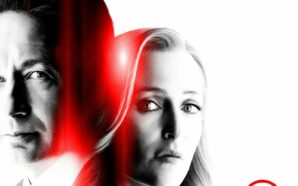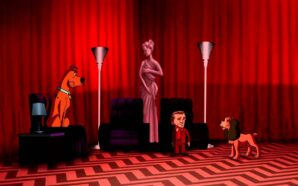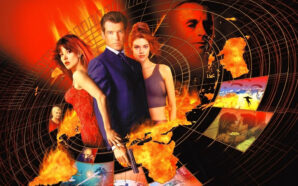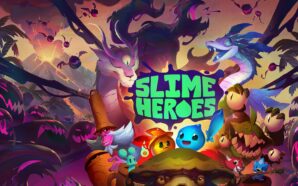Spoilers for episodes 1-5 of Star Trek Discovery and the prequel novel ‘Desperate Hours’.
The past few weeks have been a busy and tumultuous time in the Star Trek fandom. Discovery has finally aired and is just as controversial as we all guessed it would be. I’m enjoying the show a lot, although it’s not without considerable missteps, and being of the demanding youth culture that want everything at once I have been trying to soak up as much new Star Trek as possible. I consider myself a huge fan of the franchise but have never ventured into the world of the expansive sub-canon novels until now. My first foray into this new world has been “Desperate Hours”, the generically-named prequel novel of Star Trek Discovery. It was a fun and quick yet unspectacular read that was worth it for the smaller details and character moments that will go on to inform my viewing of the future of the new show. While David Mack, the author of Desperate Hours, and the producers of the series have been hesitant to use the term ‘canon’, the novel is very connected to both Discovery and The Original Series and today I’ll share, as well as my opinion, all the story and character nuggets I found interesting while reading the book so you don’t have to.
The novel’s plot is set exactly one year before the ‘Battle at the Binary Stars’ and features the Shenzhou travelling to a colony that is under attack from a large object that has risen from the sea after being awoken from a nine-million-year slumber by a drilling incident. The object, referred to as The Juggernaut, releases drones that target the capital city and keep the Shenzhou busy while Michael Burnham beams aboard the Juggernaut with Spock to learn about, and disable, the massive craft. That’s right, Mr Spock is a primary character and enters the mix when the Enterprise, captained by Pike, comes to aid the Shenzhou. Burnham and Spock must put aside their personal feelings spawned from their familial upbringing in order to save both ships and the colonists.
Discovery is a Star Trek show like none before it and so it was fascinating to witness the crew of the Shenzhou deal with a more classic Trek plot of a colony in danger rather than the intergalactic wars that the series focuses on. Overall the plot isn’t all that engaging and the big reveals feel similar to prior stories; the Juggernaut turns out to be “a Judge”, one of many craft sent out by the now extinct Turanian Dynasty to test potential subjects and soldiers with a series of trials before the Dynasty takes over their planet. Burnham and Spock are isolated from their respective crews and captains and have to work together to pass the trials and enter the core of the vessel. The trials play out like a serious version of the games seen in the Deep Space Nine episode “Move Along Home” complete with poisonous gas and (I’m not kidding about this) a scene where Spock and Burnham have to play a game of Hopscotch with potentially deadly results.
While the plot is lacklustre, the character work makes up for it and is the highlight of the novel. Being in Burnham’s head gives her the relatability and empathy I have been wanting since her debut on the show and I appreciate her character and backstory so much more. The best scene in the novel is a mind meld between Burnham and Spock which gives them complete access to each other’s minds and memories. We learn that both of them feel great envy towards the other as they believe the other receives Sarek’s respect but they find this to be untrue. Spock’s mother Amanda gave all her love to a young Michael because if she tried with Spock he wouldn’t reciprocate because of his dominant Vulcan side. At the novel’s end he regrets this and wants to finally tell his mother how he feels and the mind meld’s outcome reveals to Michael that Sarek has never truly cared about her.
Michael begins and ends the novel wondering why Sarek sent her to Starfleet and while no answer is given we do learn a lot about Michael’s relationship with her surrogate father. The bombing of the Vulcan Learning Centre, the aftermath of which we saw briefly in Discovery’s second episode, is teased further but kept mysterious and we learn the Vulcans refer to it as “The Incident” (just like the battle of New York in the Marvel Netflix shows) and is rarely discussed. We do learn however that Michael was dead for close to 3 minutes before Amanda forced Sarek to revive Michael by transferring part of his Katra via mind meld. It is made clear that Sarek did not want to do this because of the physical and mental toll it would have on him and because of his indifference towards Michael. Another insight into Michael’s past is that she blames herself for the death of her parents because she and family were going to leave Doctari Alpha the night before the Klingons attacked but only stayed because Michael wanted to witness a rare solar event. We’ve all been there.
My only disappointment with Michael and Spock’s character explorations is that we are given no information or detail on how they interacted as children and what their relationship was like. It gets explained that they were in different years of schooling (Burnham is a couple of years older than Spock) but their home life is glossed over. We understand there was a rivalry about seeking Sarek’s attention and they later bond over both of them being disappointments to him but it feels like there are whole years of their lives that were spent together that were not detailed or even mentioned. Maybe they could be saving something for the show?
It’s not just Burnham and Spock that we get insight into either, both captains get ample characterisation in Desperate Hours too. Pike is constantly challenged by moral quandaries about how to deal with the situation, first opting to following Admiral Anderson’s (from Discovery’s first two ‘prologue’ episodes) orders to destroy the colony along with the Juggernaut and then Captain Georgiou changes his mind over the course of the book as they seek a different outcome. I liked Georgiou in Discovery but we just didn’t have enough time to get to know her and happily the novel provides plenty of insight. Not only do we find out about her past such as her marriage and divorce and love of the archaic Jazz of Miles Davis but her captaining style is also explored and she comes across in a similar way to Picard but with a greater love of the sciences than politics. She even gets a line no doubt inspired by Picard’s in First Contact when she states, “We draw the line here”. However, Georgiou does at one point refer to the Enterprise as “The big E” which is pretty ridiculous and reminded me of the seaward/C-word running gag from Arrested Development.
Saru is probably my favourite character so far in Discovery and Desperate Hours does nothing but reinforce this opinion. When with Burnham in the book he does come across a little too antagonistic but once he is on his own, or working with Pike’s First Officer Una, he is enchanting. His interactions with the crew are David Brent/Michael Scott levels of comedic cringe yet his naivete and fascination with science and history are contagious. A great chapter of the novel finds Saru beaming down to the planet with Una where they discover the history of the planet’s original civilisation and an unexpected but fun romance starts to blossom before work and duty gets in the way. Saru also has unique opinions on the Federation and its rules; for instance, Saru reveals he was saved from his home planet by Starfleet in an action that broke rules and therefore he always questions rules, such as the Prime Directive, when given them. Saru also has my favourite quote of the book, “It’s excruciating at times to be a scientist, an explorer, in a culture dominated by soldiers”. It’s strange then that we have yet to see Saru be uncomfortable in his position as First Officer of the Discovery under Captain Lorca during wartime in the series but I guess that sort of exploration of character will be saved for an episode focused purely on Saru.
For the interest of time (and word count) I’ll discuss the following interesting titbits and thoughts using bullet-points:
- A member of the Shenzhou’s crew uses the acronym FUBAR at one point which I feel goes too far for Star Trek. I’m okay with the occasional “colourful metaphors” as Spock would say but even an allusion to the f-word in Star Trek feels wrong. Edit: since writing this article ‘Choose Your Pain, the fifth episode of Discovery, has aired and featured two f-bombs and while I didn’t think I would like it, I kinda did. Tilly apologising straight afterward makes all the difference by promoting the idea that such language is uncommon and taboo in the future.
- The look and design differences between the Shenzhou and Enterprise are explained but fall flat. There’s a joke about Pike having to run to his quarters to receive a top-secret transmission because of the lack of a ready room. The only explanation I need is a real-world one and in-universe explanations are unnecessary.
- At the time of the novel, the Enterprise crew are wearing “The Cage” style uniforms which we learn are diplomatic clothes worn purely by those on Constitution-Class vessels at this time.
- The helmeted individual we see on the Shenzhou’s bridge in Discovery episodes 1 and 2 is a human female called Narwani wearing a futuristic VR Headset to aid her role as a tactical officer.
- David Mack must have been inspired by sci-fi film ‘Arrival’ because the Juggernaut/Judge feels similar to the spaceships in that film.
- Holograms apparently take up too much bandwidth and are less secure than viewscreens which I guess is why they get phased out in future Trek shows.
- No Star Trek story would be complete without a floating ball of energy so we get one of those which acts as a guide on the Juggernaut.
- There is also an argument with a supercomputer but in a cool twist it has deliberate intransigence so it cannot be confused with logic problems.
- Obligatory mention of the Kobayashi Maru is obligatory.
- There is a cool reference to the animated series episode “Yesteryear” (the only animated episode worth watching) with the mention, and death, of Spock’s pet I-Chaya.
- The novel also features a subplot about an engineer named Bowen and colony Governor Kolova who are involved in a conspiracy to mine where they shouldn’t which leads to them gathering the colony’s citizens into the sewers and taking Starfleet hostages. It’s completely unnecessary and is dropped completely at the end of the book with a sentence of exposition explaining what happened to them. One of the Shenzhou’s crew even makes mention of how anticlimactic it was. Very strange.
Well, I think that is about everything. I enjoyed the book but can’t say I’m going to read anymore of the wider Trek expanded universe. I recommend the book to those who like Discovery but want a little bit more examination of the characters but it is far from required reading especially to those who are not enjoying Discovery, it won’t change your opinion of the series.
What are your thoughts on Star Trek Discovery? Going to check out the prequel novel? Let me know in the comments and geek out with me about TV, movies and videogames on Twitter @kylebrrtt.








